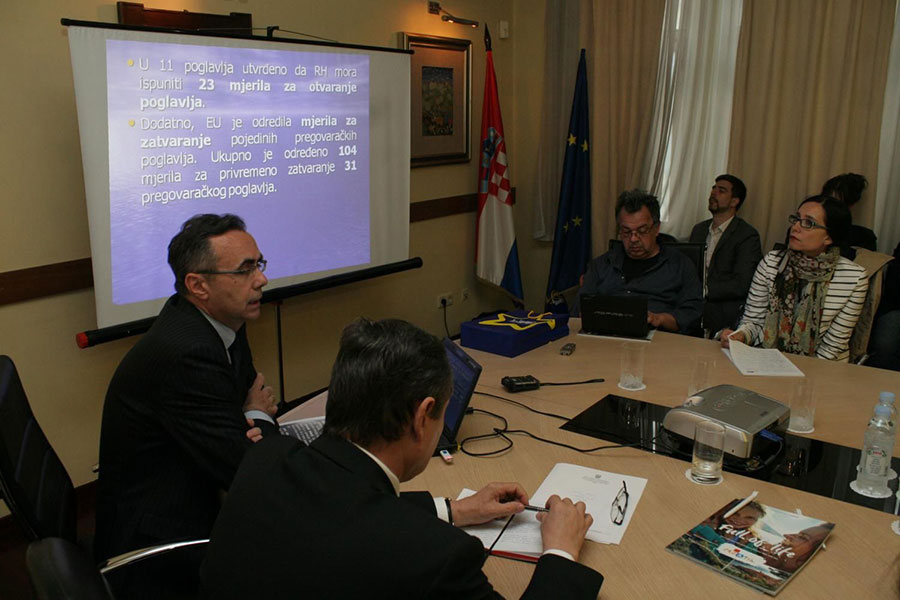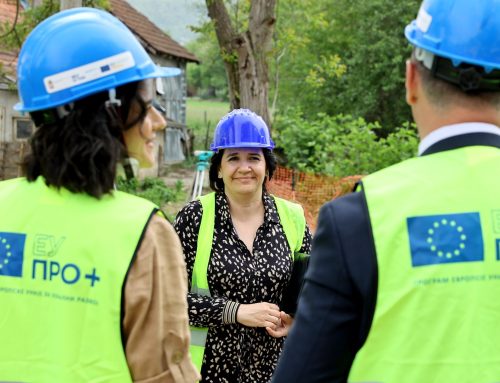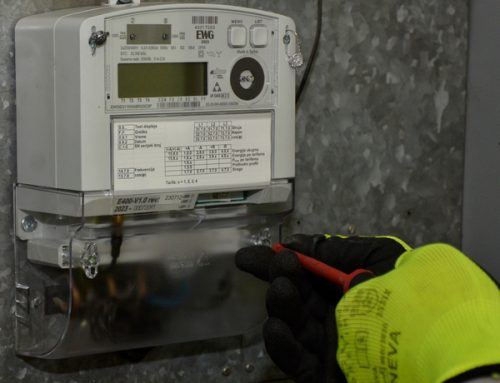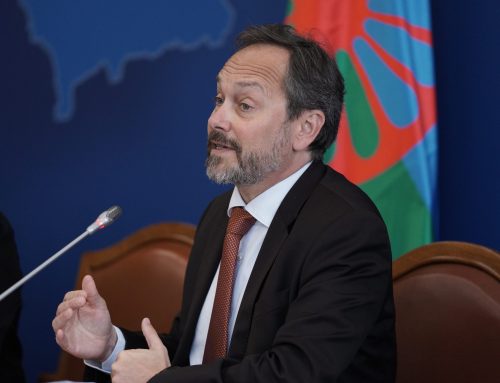“Open Days“ campaign, organised yearly by EU Member States’ embassies with the support from the EU Delegation in Serbia and the EU Info Centre, kicked off at the Embassy of the Republic of Croatia. On this occasion, Ambassador Gordan Markotic talked to 26 participants of the Forum for international politics and diplomacy of the Faculty of Law in Belgrade, among which were students and graduates of the Faculty of Political Sciences, Faculty of Economy, Faculty of Philology and Faculty of Security Studies.
In his speech, Ambassador Markotic shared Croatian accession experience by mentioning three important dates: 29 October 2001 when the SAA was signed; 18 June 2004 when Croatia became a candidate country; and 1 July 2013 when it became a full-fledged member of the EU. Markotic said that over the course of that period, Croatia had to meet a series of requirements and criteria, but could also use many of the pre-accession funds. Among the challenging chapters, Markotic cited chapter 8, dealing with antitrust policy, chapter 13 dealing with fisheries, chapter 27 which concerns environment and chapters 23 and 24 which marked the closure of Croatian accession negotiations.
Also, at the moment Croatia was about to enter the EU, the Union made changes to the process; new rules had been introduced when it comes to meeting the criteria; then Slovenia blocked the country’s negotiations due to border dispute; and finally, accession has been slowed down due to Croatia’s lack of cooperation with International Criminal Court in the Hague.
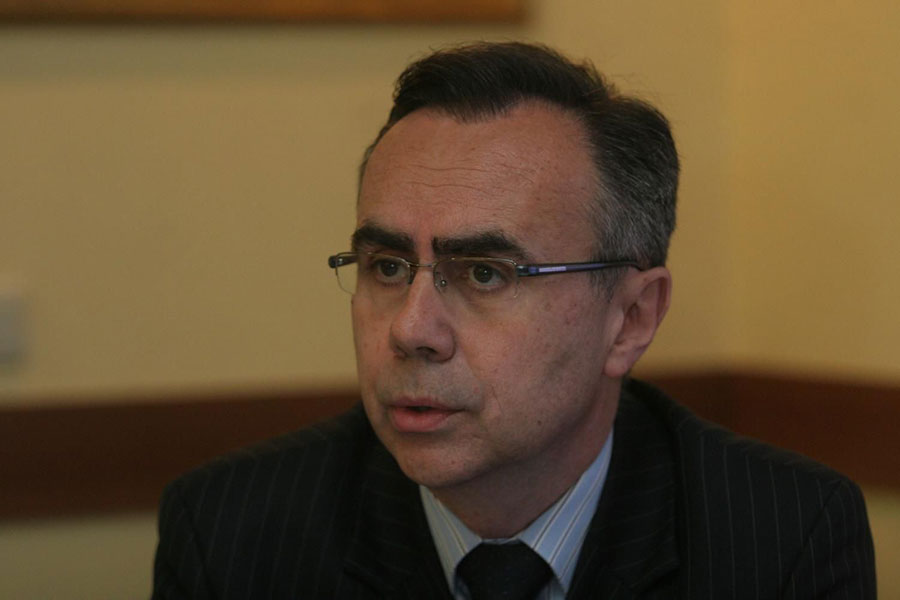
FoNet
Markotic mentioned multiple benefits of EU membership, including increased stability and security, better negotiating position in talks with international institutions in the area of economy in particular, as well as improved public administration and a more efficient justice system. To illustrate his point, Ambassador said that prior to accession, Croatian courts had 1.6 million pending cases, whereas today this number stands at 500 000.
Speaking about advantages of the membership, Ambassador said that, among other things, Croatia was given access to European structural and investment funds and allocated with EUR10.676 billion for the period of 2014-2020.
“Serbia belongs in the EU”
Students and graduates asked numerous questions regarding Croatia’s accession experience and current developments. Asked to comment on why Croatia blocked chapters 23 and 24 within Serbia-EU negotiations, Ambassador Gordan Markotic said Serbian accession negotiations were not blocked but were going through a process all countries wishing to join the EU had to go through.
“Unresolved issues between Croatia and Serbia are years-old, but we are convinced they could be resolved through bilateral process because the most important thing is to keep the dialogue going. Croatian Minister of Foreign Affairs Miro Kovac recently said that solutions to these issues were subject to extensive talks with European Commission and Dutch presidency,“ Markotic said.
Croatia believes Serbia had no right to process the war crimes committed on the territory of ex-Yugoslavia and prosecute Croatian citizens in Serbia. He also said the issue could be resolved through dialogue.
He added Croatia itself had to deal with slower pace of negotiations once “Topnicki dnevnici“ were found and associated with operation “Oluja“. Other requirements for Croatia included the holding of Pride Parade in Split and finding solution to border dispute with Slovenia.
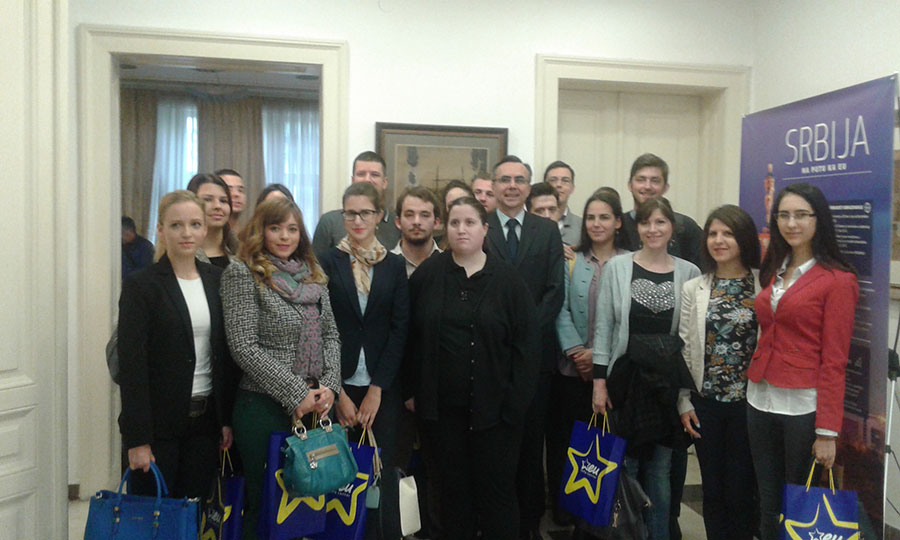 When students asked Markotic why Croatia was so persistent to push the border with Serbia on the River Danube and thus acquire 11 000 hectares of Serbian territory around Sombor, Apatin and Backa Palanka, he said he was not familiar with the border dispute and that the issue should be resolved by international lawyers.
When students asked Markotic why Croatia was so persistent to push the border with Serbia on the River Danube and thus acquire 11 000 hectares of Serbian territory around Sombor, Apatin and Backa Palanka, he said he was not familiar with the border dispute and that the issue should be resolved by international lawyers.
“If experts fail to come to an agreement, the International Court of Justice in the Hague will resolve this issue. Serbia and Croatia are not the sole countries facing such challenge and I prefer not to comment on it, but I believe Serbian and Croatian experts should sit down and have an open discussion about it in the spirit of good neighbourly relations,“ said Markotic.
He said Croatia wanted to see Serbia in the EU and had been advocating its membership for years. He said there are reasons of geo-strategic nature for this, e.g. the fact that Serbia is surrounded by EU Member States, adding that it would be a good thing if the entire territory of ex-Yugoslavia would become part of the Union. Asked whether unlike Croatia Serbia has an alternative to becoming an EU member, such as entering into alliance with Russia or China, Markotic said the EU was the future and had no alternative because of the multiple benefits it could bring. “Serbia belongs in the EU,“ said Croatian Ambassador Gordan Markotic.

